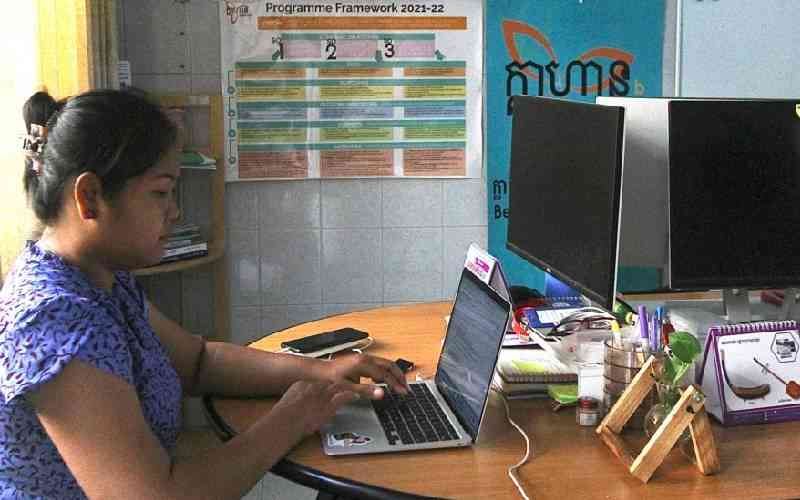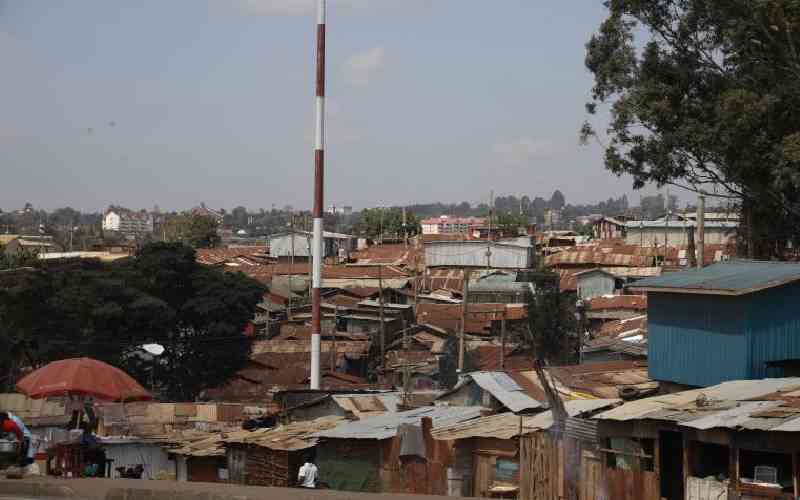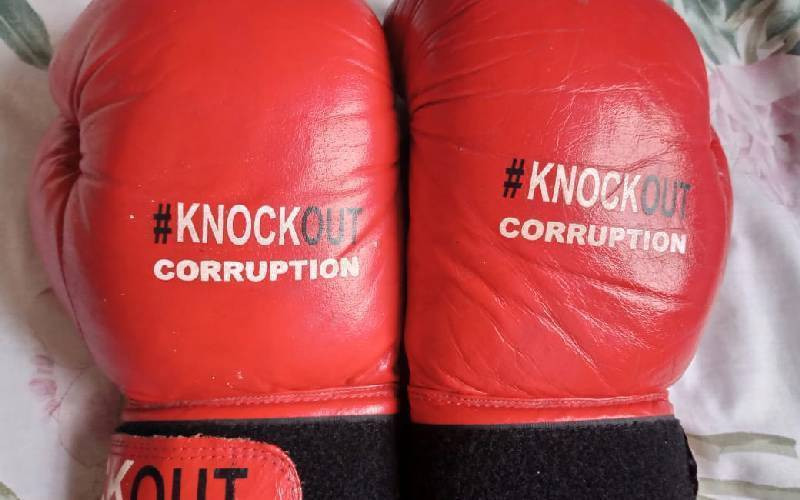Susan Mutongori spent nearly two decades in Nakuru GK Prison for murdering her baby. The body of the 17-month old toddler was discovered in a thicket near an overpass in June, 2006.
Mutongori who denied killing her child said she only gave her a sleep-inducing drug so that she could leave her overnight and attend a party. She was convicted of the murder and sentenced to death. The sentence was however later commuted to life imprisonment and Mutongori released last year after an appeal.
Stories like Mutongori’s have grown increasingly common. The killing of babies has become a puzzling pathway to prison for many mothers. Such killings have been attributed to stress, depression, poverty, domestic quarrels, rape, alcoholism, among others.
There is also desertion by baby daddies, as was the case with Mercy Kagwiria, who was sentenced to five years in jail by a Meru court in 2015. Kagwiria was found guilty of strangling her one-month-old baby at Thigu village in Buuri sub-county. The postmortem report indicated that the infant bled through the nose, an indication of strangulation. Kagwiria later admitted killing her youngest baby after the child’s father reportedly abandoned them.
Halima Sheilla Bwakali is another mother serving sentence at Kakamega Women’s Prison for poisoning and killing her daughter. Sheilla pleaded guilty to administering diaxonal poison to her two children on December 23, 2019 at Kisa East village, Kwisero sub-county.
She also admitted taking the same poison over a domestic tiff with her mother, Ruth Auma, over her alcoholism, besides alleged loss of Sh2,000 from the house for which her mother had asked her to move out before she returned from church.
Angered by her mother’s tongue-lashing, Sheilla reportedly bought the poison which she forced on her children. A neighhour took Sheilla and her children to hospital where one daughter was pronounced dead on arrival.
Poisoning her two children was also what led to yet another mother, Naomi Wamaitha Njeri, being sentenced to eight years in 2013. Njeri poisoned the children at Karoha village, Kiambu County, where one of them died.
Njeri dated a handcart pusher she met while working as a house help in Buruburu, Nairobi. They had two children but later separated and she left the man with the children. The children reportedly became homeless and were rescued from the streets and returned to the mother.
At the time, Njeri was working as a house help in Eastleigh and living with her matatu driver lover, who did not know she had children with another man. Matters went south after the man kicked them out. A desperate Njeri decided to give her children tea mixed with organophosphorous pesticide, leading to the death of her daughter and the son being hospitalised.
Experts blame the decision of life givers turning into killer mothers on, among others, mental health challenges. Mary Njenga, a psychologist, explains that sometimes killer mothers seek attention or are overwhelmed by a situation.
Others have mental illness or were “depressed during pregnancy over what they considered poor decisions or judgments. Sometimes delusions, fantasies and feeling guilty for giving birth at an early age or the disappearance of the father can make a mother kill her child.”
Njenga adds that there are also “secondary motives which affect most women after birth. She singles out post partum blues such as crying and anxiety” and explains that “no mother will kill her child if she’s in the right frame of mind. Those who do it are crying for attention and by the time they are taken to court, they snap back to their senses, albeit too late,” she says.
There are also mothers who kill to protect their children from misery because they feel rejected. “If they were rejected by the father of the child, they develop some delusional fantasies to their child because they see them as a hindrance. Very few mothers are able to hide murder and most of the time will stay around instead of running. That is a sign that they are not okay,” said the psychologist.
Prof Halimu Shauri, a sociologist at Pwani University, says myriad economic challenges, especially the kind faced by single mothers, results in mental health problems.
Stay informed. Subscribe to our newsletter
“These are made worse by hormonal changes in women which pushes them to depression and hence become a risk to their babies due to frustrations. When they become extremely lonely and depressed, single mothers direct their aggression towards their children because they don’t have someone to talk to share their problems,” said the lecturer.
Prof Shauri narrows down economic hardships in the absence of a breadwinner as one trigger and whose solution lies in women economic empowerment.
But how such women were brought up by their mothers also matters, says Wachira Kiago, the chairman of Kikuyu Council of Elders. He argues that “counselling is done by mothers and they have failed terribly. The young mothers are killing their newborns because there is lack of guidance from their mothers. Killing an innocent child is ungodly. Every time a baby was born in a community there was joy across the land because nobody knows the future of that child,” Kiago told The Nairobian.
Adds Kiago: “Rape is another menace that has caused young mothers to end the lives of their young ones because they don’t want to be associated with them. They kill because of desperation and due to these rising cases, the Kikuyu Council of Elders has a branch called the Women League that has been tasked to advise our young women.”
Ngige Kinyinge, another Kikuyu elder, says that in the old days, mothers killing their children was unheard.
“We were brought up properly and a child belonged to the community. The root cause of these killings is poor upbringing. Our daughters no longer believe in our traditions, they have embraced westernisation. They do things they see in movies,” he says.
Poor single mothers are driven to the brink by mental illness
Alcoholism has been cited as a common trait in killer mothers. This is scary considering that about 14 per cent of Kenyans aged 15-65 years consume alcohol, according to the National Authority for the Campaign Against Alcohol and Drug Abuse (NACADA). That was in 2012. The figure could have risen since.
The World Health Organisation puts the global estimates at 237 million men and 46 million women with alcohol-related disorders. In 2016, an estimated 23 million men died of alcohol-related incidents as opposed to 700 million women.
Another trigger is drug abuse. A report by Muslim Education and Welfare Association, The Omari Project and Reachout Centre Trust, estimated that in Africa, women account for 10 to 20 percent of all injecting drug users and that their numbers are growing.
Beyond drugs, many young Kenyan women are single mothers. A 2013 study on single motherhood and child mortality in sub-Saharan Africa found that Kenya has one of the highest numbers of children born out of wedlock in Africa.
Indeed, ‘giving birth before marriage’ and ‘divorce’ were cited as the leading causes of single motherhood. The study found that child mortality is higher among these women, and linked it with lack of healthcare, environmental conditions, poverty and women’s education.
More often than not, the women suffer serious mental health challenges. But there are avenues to seek help.
Organisations like M2M work to improve access to health for communities and deliver service to mothers and children. Another group with similar objectives is the Single Mothers Association of Kenya (S.M.A.K.) based in Eastlands.
Illegitimate kids are seen as barriers to new affairs
Most religions have commandments against killing, but such beliefs have not been a deterrent.
Ustadh Omar Athman Omar, the Imam of Al-Ihsan Mosque in Malindi says “lack of religion propels young mothers to kill their innocent children. It all depends on how one got pregnant and most of these cases come from poor families. Rich people have financial ability and also consider options like giving out the babies for adoption or children’s home instead of killing them. There are also those who regard themselves as celebrities and tend to think that raising a child will slow down their careers and ruin their image. Relationships are also big contributors because a child born out of wedlock is seen as a barrier to a new relationship.”
Bishop David Muriithi of House of Grace Church says most killer mothers are not aware they’re mentally ill. He says that a majority “are basically going through something difficult in their lives. They hate the father and when sufferings pile up, they end up thinking the worst. African families are accommodative and it’s better to give your child to your aunt or uncle; you don’t have to kill a child.”
 The Standard Group Plc is a
multi-media organization with investments in media platforms spanning newspaper
print operations, television, radio broadcasting, digital and online services. The
Standard Group is recognized as a leading multi-media house in Kenya with a key
influence in matters of national and international interest.
The Standard Group Plc is a
multi-media organization with investments in media platforms spanning newspaper
print operations, television, radio broadcasting, digital and online services. The
Standard Group is recognized as a leading multi-media house in Kenya with a key
influence in matters of national and international interest.
 The Standard Group Plc is a
multi-media organization with investments in media platforms spanning newspaper
print operations, television, radio broadcasting, digital and online services. The
Standard Group is recognized as a leading multi-media house in Kenya with a key
influence in matters of national and international interest.
The Standard Group Plc is a
multi-media organization with investments in media platforms spanning newspaper
print operations, television, radio broadcasting, digital and online services. The
Standard Group is recognized as a leading multi-media house in Kenya with a key
influence in matters of national and international interest.








